Archives - Regards sur nos publications
 © Daguerréotype, 1855, CC0 Public Domain Designation, Chicago Art Institute.
© Daguerréotype, 1855, CC0 Public Domain Designation, Chicago Art Institute.Cette page présente par ordre de parution les débats et les analyses suscités par les publications scientifiques des chercheur-e-s du CERI au cours du trimestre.
Vous y trouverez, entre autres, des entretiens, vidéos, podcasts et comptes rendus qui contribuent à prolonger et à enrichir la réflexion développée dans ces travaux.
Toutes ces ressources sont librement accessibles en ligne, sauf les recensions parues dans des revues à comité de lecture.
Au-delà de cette page,
la liste complète des publications scientifiques.
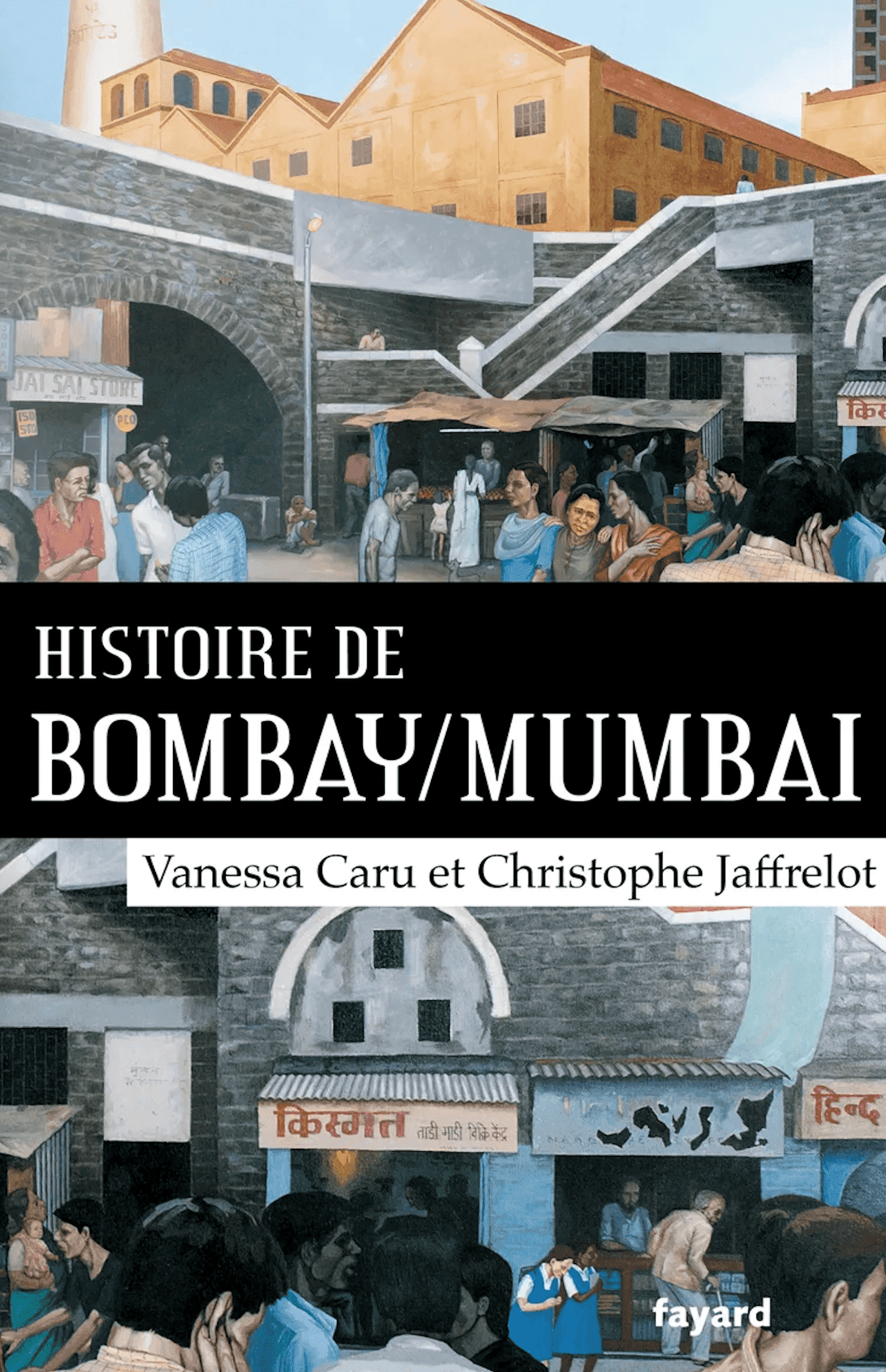
Christophe Jaffrelot et Vanessa Caru
Paris, Fayard, 2024, 544 pages.
Bombay, devenue Mumbai en 1995, est surtout connue en France pour ses conditions catastrophiques de logement et pour son industrie cinématographique florissante, Bollywood. Au-delà de ces images attendues, Vanessa Caru et Christophe Jaffrelot ont voulu retracer l'histoire de cette cité devenue, depuis le XIXe siècle, la capitale économique de l'Inde ainsi que la ville la plus peuplée du pays, attirant migrants et migrantes à la recherche d'une vie meilleure. De port inséré dans de multiples réseaux commerciaux, elle s'est mue en une métropole industrielle et s'est imposée comme un des hauts lieux de la lutte pour l'Indépendance, mais aussi de puissants mouvements sociaux qui visaient à remettre en cause les inégalités de classe et de caste. Ressaisissant sa trajectoire historique, les auteurs éclairent les défis auxquels la ville est à présent confrontée : la montée de la xénophobie, notamment du nationalisme hindou, l'emprise du crime organisé, les effets de la désindustrialisation ainsi que des dégradations environnementales dont pâtissent au premier chef ses habitantes et habitants les plus précaires.
Autour de la publication
Entretiens du CERI
30 août 2024
De Bombay à Mumbai : une ville en mutation politique, économique et sociale
Entretien avec Christophe Jaffrelot, par Corinne Deloy
Recensions
Novembre 2024
Les livres du mois
Lili Frèrebeau, Le Monde diplomatique
12 novembre 2024
Les livres de la dernières minute
Jean-Marc Daniel, BFMTV
Janvier 2025
De Bombay à Mumbay
Clément Fabre, L'Histoire
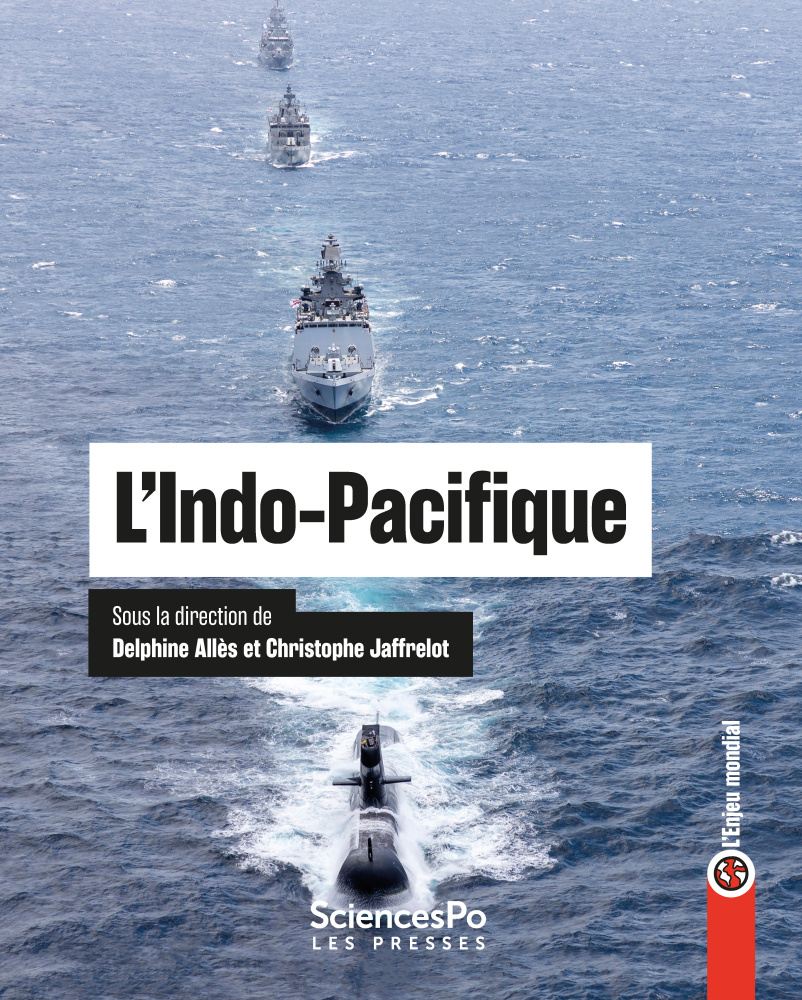
Delphine Allès, Christophe Jaffrelot (dir.)
Paris, Presses de Sciences Po (L'Enjeu mondial), 2024, 190 p.
Formulée pour la première fois en 2007 pour souligner la convergence des intérêts indiens et japonais en matière de sécurité maritime, la notion d'Indo-Pacifique s'est imposée en une petite décennie à l’agenda international. Elle structure les discours politiques et stratégiques de la plupart des États interagissant dans cette zone et, au-delà, fait l’objet de définitions concurrentes, de réinventions et de contestations. Elle agit comme un révélateur géopolitique : chaque acteur semble projeter à travers elle sa conception du monde. Cartes et données à l’appui, cet ouvrage propose, au fil des contributions, une synthèse inédite d’analyses sur une zone devenue un enjeu mondial. Coréalisée par le CERI et les Presses de Sciences Po, la collection « L’Enjeu mondial » propose les analyses de spécialistes illustrées de façon claire et pédagogique par des cartes et des graphiques en couleurs, et enrichies des données les plus récentes.
Autour de la publication
Vidéos
10 décembre 2024
Trois entretiens sur l'Indo-Pacifique
Entretiens avec trois auteurs de l'ouvrage, par Christophe Jaffrelot
Médias
22 janvier 2025
Quelle place pour la France et l'Europe en indo-pacifique à l'heure de la nouvelle politique internationale américaine ?
Débat avec Delphine Allès, par Quentin Lafay, France Culture
Recensions
8 février 2025
L’Indo-Pacifique : naissance d’un concept
Séverine Bardon, En attendant Nadeau
Janvier 2025
Recension de l'ouvrage L'Indo-Pacifique
Renaud Lambert, Le Monde diplomatique

Mathias Delori et Christian Olsson (Dir.)
The French War on Terror A Relational Approach to (Counter-)Terrorism
Abingdon & New York, Routledge, Routledge Studies in Liberty & Security, 2024, 156 p.
This book analyses the French war on terror, covering the French contributions to the US-led ‘war on terror’ and the wars in the Sahel Region since 2013. This book argues that ‘terrorism’ and offensive counter-'terrorism' are not separate phenomena but, rather, need to be analyzed as two segments of one common violent relation. This leads the work to deconstruct the argument made by state officials that the French approaches to counter-'terrorism' have been more humane and more efficient than the Anglo-Saxons'. France has not avoided the mistakes previously committed by the US and Britain. The only originality of France's war on terror is in fact its anachronistic character. Indeed, France embraced this warlike approach to counter-'terrorism' in mid-2010, at a moment when the US and Britain had already recognized the shortcomings of this approach and started to abandon it. This book will be of much interest to students of critical terrorism studies, French politics, and International Relations.
Autour de la publication
LES ENTRETIENS DU CERI
14 janvier 2025
"Studying Counter-Terrorism through a Comprehensive IR Approach"
Interview with Mathias Delori and Christian Olsson, by Miriam Périer

Dominique Bourg, Astrid von Busekist, Michel Foucher
Paris, Philosophie magazine Éditeur, 2024, 80 p.
Si la mondialisation permet la libre circulation des marchandises, pourquoi cette libre circulation ne s’applique‐t‐elle pas aussi aux individus ? Comment accorder la démocratie avec la préservation raisonnée des frontières ? Dans cet essai, une spécialiste de théorie politique, un géographe et un philosophe examinent les nombreuses problématiques liées aux frontières – leur nécessité, leurs propres limites et les crises auxquelles elles renvoient… Et les trois s’accordent sur l’importance des États face aux risques du chaos.
Autour de la publication
LES ENTRETIENS DU CERI
13 janvier 2025
"Can we—should we—do without borders? Interview with Astrid Von Busekist"
Interview with Astrid von Busekist, by Corinne Deloy
09 janvier 2025
"Peut-on, doit-on se passer des frontières ? Entretien avec Astrid von Busekist"
Entretien avec Astrid von Busekist, par Corinne Deloy
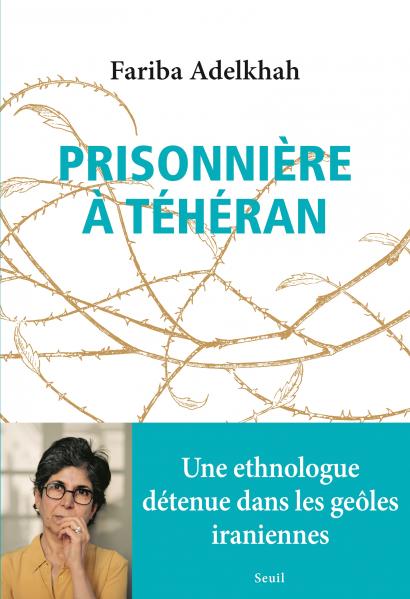
Paris, Seuil, 2024, 256 p.
Par définition un anthropologue est un intrus. Sa présence et son regard dérangent. Fariba Adelkhah en a fait l’expérience. Arrêtée en 2019, elle a été condamnée en 2020 à cinq ans de prison en Iran pour atteinte à la sécurité nationale. Elle a finalement été libérée en 2023, après avoir été graciée et non acquittée comme elle l’aurait souhaité. Privée de son terrain d’étude, elle s’en est inventé un autre, inattendu. Dans une suite de courts récits, Fariba Adelkhah raconte sans complaisance, à rebours des clichés, sa vie de prisonnière « politico-sécuritaire » en République islamique. Par là même, elle renouvelle notre compréhension de l’Iran post-révolutionnaire, et livre une réflexion plus générale sur la condition carcérale. Elle incarne également avec modestie, ironie et non sans auto-dérision un combat courageux et lucide pour la liberté scientifique, de plus en plus menacée aussi bien dans les régimes autoritaires que dans les démocraties libérales.
Autour de la publication
Présentation et débat
25 novembre 2024
Vidéo - Podcast
À l'occasion de la publication de son livre, présentation de Fariba Adelkhah suivi d'un débat avec Stéphanie Balme, Vincent Casanova, Béatrice Hibou, Pascale Laborier et Jean-François Bayart
Médias
21 novembre 2024
« J'ai voulu démystifier la prison d'Evin »
Entretien avec Fariba Adelkhah, par Arnaud Pontus, RFI
16 novembre 2024
"Toutes les prisonnières politiques ont un projet d'émancipation"
Entretien avec Fariba Adelkhah, par Charline Vanhoenacker, France Inter
11 novembre 2024
Retenue 4 ans en Iran - Fariba Adelkhah
Entretien avec Fariba Adelkhah, par Anne-Elisabeth Lemoine, France 5
"J'ai survécu en faisant mon métier, en transformant la prison iranienne en objet d'étude"
Entretien avec Fariba Adelkhah, par Sonia Devillers, France Inter
Derrière les murs d'Evin, à Téhéran
Entretien avec Fariba Adelkhah, par Pauline Paccard, France 24
07 novembre 2024
Fariba Adelkhah, une anthropologue en prison
Entretien avec Fariba Adelkhah, par Sylvain Bourmeau, France Culture
Prisonnière en Iran
Entretien avec Fariba Adelkhah, par Elisabeth Quin, Arte
Recension
23 novembre 2024
Iran. Fariba Adelkhah, carnets de prison
Laurent Bonnefoy, Orient XXI
CERI/Lab.
01 janvier 2024
« Je ne vais pas manquer à mes promesses… »
Témoignages de Fariba Adelkhah
Extraits
Préface (cliquer sur "Feuilleter")
Dernier chapitre
Postface de Béatrice Hibou

Alice Mesnard, Filip Savatic, Jean-Noël Senne, Hélène Thiollet
Population and Development Review, 2024, 36 p. DOI: 10.1111/padr.12650. HAL: hal-04687266
Migrant destination states of the Global North generally seek to stem irregular migration while remaining committed to refugee rights. To do so, these states have increasingly sought to externalize migration control, implicating migrant origin and transit states in managing the movement of persons across borders. But do externalization policies actually have an impact on unauthorized migration flows? If yes, do those impacts vary across different migrant categories given that both asylum seekers and other migrants can cross borders without prior authorization? We argue that these policies do have an impact on unauthorized migration flows and that those impacts are distinct for refugees and other migrants. Using data on “irregular/illegal border crossings” collected by Frontex, the Border and Coast Guard Agency of the European Union (EU), we first find that the geographical trajectories of refugees and other migrants who cross EU borders without authorization are distinct. Using a novel method to estimate whether individuals are likely to obtain asylum in 31 European destination states, we find that “likely refugees” tend to be concentrated on a single, primary migratory route while “likely irregular migrants” may be dispersed across multiple routes. Through an event study analysis of the impact of the 2016 EU–Turkey Statement, a paradigmatic example of externalization, we show that the policy primarily blocked likely refugees while deflecting likely irregular migrants to alternative routes. Our findings ultimately highlight how externalization policies may fail to prevent unauthorized entries of irregular migrants while endangering refugee protection.
Autour de la publication
Médias
20 novembre 2024
L’externalisation des contrôles migratoires de l’UE : une politique dangereuse et inefficace
Alice Mesnard, Filip Savatic, Hélène Thiollet et Jean-Noël Senne, The Conversation
Blog
10 septembre 2024
The Distinct–and Damaging–Impacts of Policies Externalizing Migration Control on Refugees and Other Migrants
Alice Mesnard, Filip Savatic, Jean-Noël Senne, Hélène Thiollet, Population Council
Réseaux sociaux
24 juillet 2024
Just published!
Hélène Thiollet
Vulgarisation
14 juin 2024
The Effects of Externalization Policies on Refugees and other Migrants
Alice Mesnard, Filip Savatic, Jean-Noël Senne, Hélène Thiollet, Externalizing Asylum, a compendium of scientific knowledge
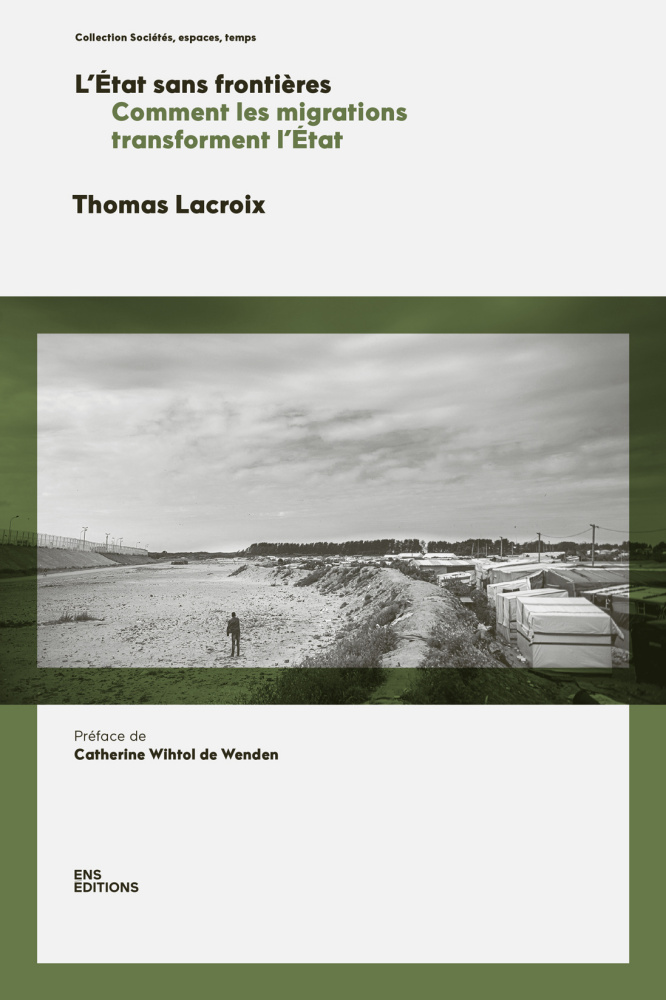
L'État sans frontières. Comment les migrations transforment l'État
ENS Éditions, Sociétés, Espaces, Temps, 2024, 348 p.
Accords de double nationalité, externalisation des contrôles aux frontières, multiplication des ministères publics en charge des diasporas… Les États développent un nombre croissant d’instruments pour intervenir au-delà leurs frontières. Comment les politiques ciblant les flux migratoires transforment-elles l’État ? Le présent ouvrage renouvelle un débat sur le transnationalisme qui, depuis plus de trente ans, anime les études migratoires. Thomas Lacroix explore la relation étroite entre « État transnational », c’est-à-dire l’ensemble des politiques et administrations d’un État destinées à réguler les flux transnationaux, et « société transnationale », soit l’écheveau des institutions sociales permettant de maintenir des liens, des pratiques et des relations par-delà les frontières. L’auteur propose ainsi la première théorie globale de l’État transnational en lien avec une théorie sociale de la société transnationale. S’appuyant sur plus de vingt ans de recherches sur des terrains variés – dans les pays du Nord comme du Sud, dans des espaces de départ, de transit ou de destination –, ce livre fournit aux spécialistes et étudiants une boîte à outils conceptuelle permettant d’appréhender aussi bien les pratiques des migrants que les politiques d’État.
Autour de la publication
Les entretiens du CERI
20 novembre 2024
"L'Etat face au flux migratoire ne se déterritorialise pas, il se transnationalise"
Entretien avec Thomas Lacroix, par Miriam Périer

Khatharya Um et Hélène Le Bail (dir.)
Générations post-réfugiées. Les descendants de réfugiés d’Asie du Sud-Est en France
Tours, Presses Universitaires François-Rabelais, 2023, 276 pages.
Depuis la réinstallation massive de réfugiés du Vietnam, du Laos et du Cambodge, principalement aux États-Unis, mais aussi en France, les communautés d’Asiatiques du Sud-Est ont connu un tournant avec les générations nées dans la diaspora : les générations post-réfugiées. Ces descendants de réfugiés ont, inévitablement, une expérience différente de la France par rapport à leurs parents et les liens qu’ils construisent avec le pays de leurs ancêtres le sont tout autant. Privilégiant la parole et les points de vue des générations post-réfugiées, ce livre engage un dialogue autour des questions d’identité, de représentation, de citoyenneté, d’appartenance et de mobilisation des Asiatiques du Sud-Est en France, tout en les replaçant dans le contexte plus large des effets à long terme du traumatisme historique, du déplacement forcé, des politiques d’asile et des relations ethnoraciales en France. Faisant dialoguer les perspectives scientifiques, littéraires et artistiques, cet ouvrage permet de développer une approche sensible, propice à la prise en compte de voix minoritaires, et de mettre en lumière, non pas une identité ou une culture spécifique, mais un concentré d’expériences individuelles et collectives, à partager.
Autour de la publication
Entretiens du CERI
26 juin 2023
Who Are the Descendants of South-East Asian Refugees in France Today?
Interview with Hélène Le Bail, by Corinne Deloy (English version by Miriam Périer and Caitlin Gordon Walker)
09 juin 2023
Générations post-réfugiées. Les descendants de réfugiés d’Asie du Sud-Est en France
Entretien avec Hélène Le Bail, par Corinne Deloy
Vidéos
22 juin 2023
Parlons Migrations #13
Présentation de l'ouvrage dans le cadre du webinaire mensuel « Parlons migrations » de l’Institut Convergences Migrations
24 mai 2023
Rencontre autour du livre « Générations post-réfugiés »
Événement organisé par le média Koï à la médiathèque Melville, Parie 13
07 décembre 2018
Générations post-réfugié.e.s. Parcours des descendant.e.s des Asiatiques du Sud-est en France
Colloque organisé dans le cadre de la coopération entre University of California Berkeley Social Science Matrix et Sciences Po
Médias
28 juillet 2023
ផ្សាយផ្ទាល់ RFI ខេមរភាសា - ព័ត៌មានពេលយប់
Reportage (à partir de la 46e minute) de RFI en langue khmère
21 juillet 2023
ផ្សាយផ្ទាល់ RFI ខេមរភាសា - ព័ត៌មានពេលយប់
Reportage (à partir de la 49e minute) de RFI en langue khmère
Recensions
Novembre 2024
« Khatharya Um & Hélène Le Bail, éd., Génération post-réfugiées. Les descendants de réfugiés d’Asie du Sud-Est en France »
Jade Thavixay, in Moussons [En ligne], 44.
Janvier 2024
« Khatharya Um, Hélène Le Bail (dir), Générations post-réfugiées. Les descendants de réfugiés d’Asie du Sud-Est en France »
Marie Poinsot, in Hommes & migrations [En ligne], 1343.
Janvier-mars 2024
« Um Khatharya, Le Bail Hélène (dir.), Générations post-réfugiées. Les descendants de réfugiés d’Asie du Sud-Est en France, Tours : Presses universitaires François Rabelais, 2023, 276 p.”
Martin Adélaïde, in Migrations Société, 195(1)
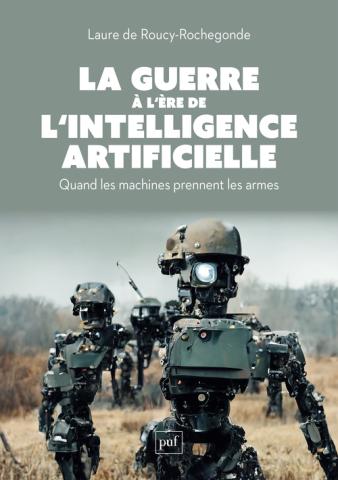
Laure de Roucy-Rochegonde
Paris, PUF, 2024, 344 p.
Les progrès fulgurants des techniques d'intelligence artificielle et de la robotique, et surtout leur application au domaine de la défense, font entrevoir l'émergence de nouveaux types de robots militaires, rendus toujours plus autonomes, c'est-à-dire capables de recourir à la force de leur propre chef. Les « robots tueurs » soulèvent néanmoins de nombreuses questions : ces moyens de guerre permettant de ne pas exposer l’humain peuvent-ils être pleinement contrôlés ? Qu’implique le recours à ces technologies ? Quels effets produisent-elles sur ceux qui les emploient, sur les adversaires qui y font face, et sur la forme même des rapports entre agresseurs et agressés ? Ces systèmes modifient-ils les relations entre les États, mais aussi le lien entre l’État et ses citoyens ? Sont-ils compatibles avec le droit de la guerre ?
Autour de la publication
Médias
27 octobre 2024
La guerre à l’heure de l’IA
Laure de Roucy-Rochegonde, The Conversation
28 octobre 2024
La guerre à l'ère de l'intelligence artificielle
Entretien avec Laure de Roucy-Rochegonde, par Quentin Lafay, France Culture
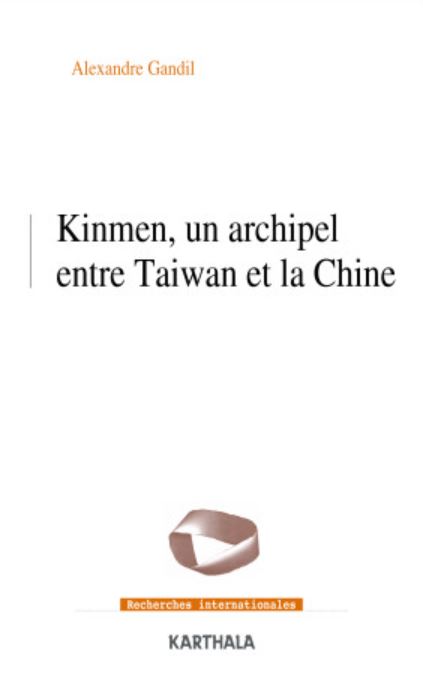
Alexandre Gandil
Paris, Karthala, 2024, 396 p.
C’est le reliquat de la guerre civile chinoise (1946-1950) et de la Guerre froide. À quelques kilomètres seulement des côtes de la République populaire de Chine, aux portes de la province continentale du Fujian, le drapeau de la République de Chine (Taiwan) flotte encore sur le petit archipel de Kinmen (Quemoy). La lecture de cet ouvrage s’impose à qui veut comprendre la question sino-taiwanaise et la menace qu’elle fait peser sur la paix mondiale, en ces temps dangereux. Et aussi à qui veut reprendre à nouveaux frais le rapport de l’État à la nation, dans une perspective comparative.
Autour de la publication
Les Entretiens du CERI
08 décembre 2024
Kinmen, un archipel entre Taiwan et la Chine
Entretien avec Alexandre Gandil, par Corinne Deloy
Médias
15 octobre 2024
La Chine veut-elle envahir Taïwan ?
Entretien avec Alexandre Gandil, par Guillaume Erner, France Culture










